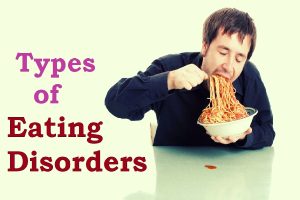It’s commonplace for people to wish to shed weight. Certain people might develop an eating disorder known as anorexia, where they think negatively about diets and food. If anyone you’re acquainted with struggles with anorexia don’t be afraid to speak to your doctor or therapist. Find out more information in the following article!
What is anorexia?
Anorexia Nervosa, often called anorexia is a life-threatening eating disorder that is characterized by self-suffering and extreme weight loss. The majority of people suffering from anorexia suffer from distorted body images and perceive themselves to be overweight, even though they are severely underweight. They might eat or exercise too much until they are overweight and could be prone to purging behavior like self-inflicted vomiting or abuse of diuretics, laxatives, or Enemas.
People suffering from anorexia typically limit the type and quantity of food they consume and can result in extreme malnutrition. Anorexia can have a major effect on physical health, mental well-being and the quality of living. It is linked to many medical issues such as skeletal issues organ damage, anemia, blood pressure issues in addition to electrolyte balance issues. It can also lead to psychological issues like depression, anxiety, or Obsessive compulsive Disorder (OCD). The treatment for anorexia typically requires a team strategy that involves the supervision of a doctor, nutritional counseling as well as psychotherapy. Sometimes, it is medications.
Who are at risk?
There are a variety of kinds of eating disorders and each has their own risk factors. Certain eating disorders, Castlewood eating disorder treatment center like anorexia-nervosa, are more likely to develop in certain groups including young women. Others eating disorders, like eating disorders that are binge-like, can affect anyone from any age and gender.
What ever type of eating disorder that you are suffering from, it is important to seek treatment as quickly as is possible. The sooner you get started on treatment, the higher your chance of making complete recovery.
How to Treat Anorexia
There are many methods to treat anorexia and the ideal method will depend on the degree of the disorder as well as the specific circumstances of each individual. The treatment of anorexia requires a mixture of treatments that address mental issues that cause the disorder and help individuals to develop healthy eating routines.

Cognitive behavioral therapy (CBT) is among the most effective methods therapy for treating anorexia. CBT is focused on helping an individual to modify negative thought patterns and habits that can contribute to eating disorder. The aim is to help them develop an improved relationship with food and body.
Therapy based on family (FBT) is a different efficient method of treatment particularly for children who live at home. The FBT process involves working closely with the parents and other caregivers to assist them in understanding and help their child’s recovery. This kind of therapy also assists families in improving their communication and problem-solving skills.
Counseling for nutrition is an essential aspect of treatment for anorexia because it helps people understand how to eat right and make healthier choices with regards to food. Counselors can also offer assistance and advice at meal times that can be challenging for those suffering from anorexia.
Inpatient or residential therapy may be required for those suffering from severe anorexia and who are at risk of health issues or the possibility of relapse. Alsana’s St. Louis eating disorder treatment center Inpatient programs offer 24 hours of care with supervision and care in a secure setting. Patients can get meals cooked by a nutritionist.
Treatment of eating disorders for different types is available
The most commonly used forms of treatment for eating disorders are:
1. Psychotherapy It is the most popular type therapy for people suffering from eating disorders. It involves speaking with the psychotherapist about your feelings, thoughts and behavior that are that are related to eating and food. Therapy can assist you to to understand and alter the behavior and thoughts that cause an eating disorder.
2. Counseling for nutrition: This kind of treatment will assist you in developing healthier eating patterns and make better choices with your food. A registered dietitian is able to help you create an nutrient-rich meal plan and help you maintain a healthy diet.
3. Medical attention If you suffer from any eating disorders, you might require the services of a doctor or another health professional to seek medical attention. Disorders of eating can lead to serious health issues, so it is important to seek medical attention if you suffer from one.

4. Hospitalization: In some instances those suffering from eating disorders may need to be admitted to a hospital so that they can be closely observed and receive treatment that is intensive. This is generally only needed for those suffering from severe eating disorders that are at risk of developing serious health issues or even death.
If you’re someone suffering with an eating disorder or you know someone who is you, it’s crucial to understand the various forms of treatment available to treat these disorders. It could be as easy as ensuring an appropriate diet, however there are more specialized treatments such as cognitive behavioral therapy, which can aid those suffering from a variety of issues.
If you are suffering with an eating disorder and/or know of someone else who has need to know the various treatments available. Disorders of eating can have a significant impact on mental and physical health, which is why it’s crucial to seek out the appropriate treatment.
The first step to treat an eating disorder should be to determine how severe the issue. If someone is suffering from anorexia-related or nervosa for instance it is possible that they will need to be hospitalized so they are closely monitored for any medical issues. After stabilizing the patient and stable, they may begin receiving outpatient care.
Treatment for eating disorders can differ based on the person and the degree of their illness. For some an energizing diet and exercise routine may suffice to recover. Some may require more intense treatment such as cognitive behavioral therapy or medications.
It is important to keep in mind that the recovery process from eating disorders is feasible. With the proper treatment numerous people can be able to live happy and healthy lives.